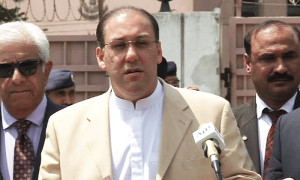Aventador
Voter (50+ posts)
i know how it works... im more interested in having an comparitive analysis of this bitcoin aganst a normal currency bill... protocol, solving block , decentralized is all techincal.... wht im interested here is what is the tangible stuff behind this currency.... a country note bill is all backed up with how that country is doing.. its economy , its resevres, imports exports gdp etc.. what is behind a bitcoin?
This should help:
The reason it's so hard for most people to understand Bitcoin is that most people don't really understand money. Money isn't wealth. It's an accounting system used to facilitate the exchange of wealth. (The paradox of money is that while everyone wants it, no one actually wants it - they want the stuff they can buy with it!) Many people are put off by the fact that bitcoins are "just data." But that's what ALL money is, information! More precisely, money is a means for credibly conveying information about value given but not yet received (or at least not yet received in a form in which it can directly satisfy a person's wants or needs).
To put it yet another way, money is a ledger. With fiat currencies like the dollar, that ledger is centralized. And that gives the central authority responsible for maintaining that ledger tremendous power, power that history has proven will inevitably be abused. With Bitcoin, the ledger is decentralized. And that means that no one individual or entity has the power to arbitrarily create new units (thereby causing inflation), freeze (or seize) your account, or block a particular payment from being processed. We've had decentralized money before. After all, no one can simply print new gold into existence. And the "ledger" of gold is distributed because the physical gold itself (the "accounting entries" in the metaphor) is distributed. But with gold, that decentralization comes at a heavy price (literally). The physical nature of gold makes it hugely inefficient from a transactional perspective.
Enter Bitcoin.
It is the first currency in the world that is both decentralized AND digital. It is more reliably scarce than gold, more transactionally
efficient than "modern" digital banking, and enables greater financial privacy than cash. It could certainly still fail for one reason or another, but if it doesn't, it has the potential to be very, VERY disruptive.





































